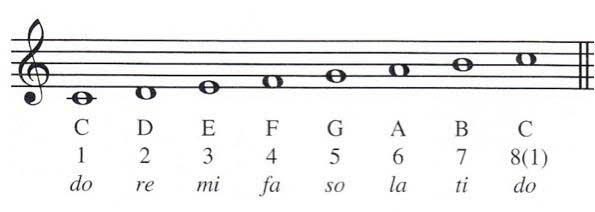The Science of Maqamat, The Arabic theory of Music
All praise is to due to Allah, may peace and blessing be upon the messenger of Allah.
Allah says in Quran. Surah Saba, verse 10

We have given David our blessings, knowledge and grace. Oh Mountains and Birds, sing the praises of your lord with him! And Iron was made easy for him mold.
عن أبي موسى رضي الله عنه عن النبي صلى الله عليه وسلم قال له يا أبا موسى لقد أوتيت مزمارا من مزامير آل داود
Abu Musa Ashari, narrates that the prophet, peace be upon him said to him while he was reciting Quran: “You have been given a mizmar, like the mizmar of David.”
عن سعد بن أبي وقاص عن رسول الله صلى الله عليه وسلم أنه قال ليس منا من لم يتغن بالقرآن
Sa’ad bin Abi Waqqas narrates that the prophet, peace be upon him said, that he is not from among us, he who does not recite the Quran beautifully.
Hudaifah narrates that the propeht said: Read the Quran with the tones and modes of the Arab.
What is a maqam?
A Maqam is an Arab mode of recitation, a set pattern of notes that can be improvised in order to convey a certain feeling or meaning. Traditionally maqamat (plural of maqam) don’t exclusively refer to recitation styles but all traditional Arabic Music. The Oud, Piano, and Flute are all tools traditionally used to bring out the sounds of Arabic music.
The science of maqamat is not exclusive to instruments, nor did it start with them, in the above hadith, the prophet, peace and blessings be upon him referred to a companions voice as a mizmar. The scholarly census of the meaning of this hadith is that the mizmar associated to David, and the companion is the same, a musical and melodious voice, not a musical instrument.
The maqamat are used as a means of expression, like how in modern music theory a scale in C major is happy, while one in C minor is sad, Some maqams express joy, others sadness, some excitement, happiness and even despair. The science of maqamat is less about musical notes and more about feeling.
The maqamat are like the previous ahadith mention, are the spices added to the recitation of the Quran in order to more skillfully deliver its meaning to listeners. Before studying these maqamat one should have a decent grasp on the science of Tajwid, and understand the importance of reciting the Quran properly.
Maqamat and Music
Music is defined as a science that governs sound and silence. Nothing spoken or unspoken is free from its classification and study. The science of music aims and tries to note and classify every sound, and comment on how it influences and effects those that hear it. If you’ve installed the pitch detector and used it, you should have noticed that every sound it detects is given a classification, a note that denotes the pitch of a sound, how high or low it is on the musical scale. The science of maqamat being an art of improvisation doesn’t need these scales to work or be applied, but knowledge of them helps to understand how to effective learn and use them.
Musical Notation

Tradition Music Notation can only serve as a guide in the science of maqamat because of how its improvised, to learn the general pattern of rising and descending in pitch however is of great benefit to the student. In typical music notation the scale of 5 lines(EGBDF) and 4 spaces(FACE) is used, the lower notes representing a lower and deeper sound, the higher notes representing a more high pitched sound. The notes are extendable upwards and downwards out of the scale for higher and lower sounds, but always cycle from A – G and around again. Here however, because we don’t care about musical instruments will talk about a process of assigning those notes pronounceable syllables called solmization or Solfège.
Solfege presents a vocal scale from C (low) to C (high) represented by specific sounds, these sounds come from an old latin hymn and are sometimes borrowed (especially in this science of maqamat) to take the place of the notes. In the scale we will be using Do is always fixed to C, Re to D and so on.
- Do – C دو
- Re – D ري (ره)
- Mi – E مي
- Fa – F فا
- So – G صول
- La – A لا
- Ti – B سي
- Do – C دو

Limits of the Maqamat
The maqamat are flexible modes with specific patterns of pitch that repeat, these are more easily applied on poetry or prose that are fixed to those modes of recitation. The Quran however is taught and recited with its own method of harakat and madd. Following the rules of tajwid is an absolute necessity in reciting quran, and ignoring the rules of tajwid in order to bring life to a musical mode is absolutely haram. These maqamat then have been adopted and modified and codified for use with quran, and one need only listen to the examples here in order to understand how the meaning of Quran is conveyed through the usage of the maqams.